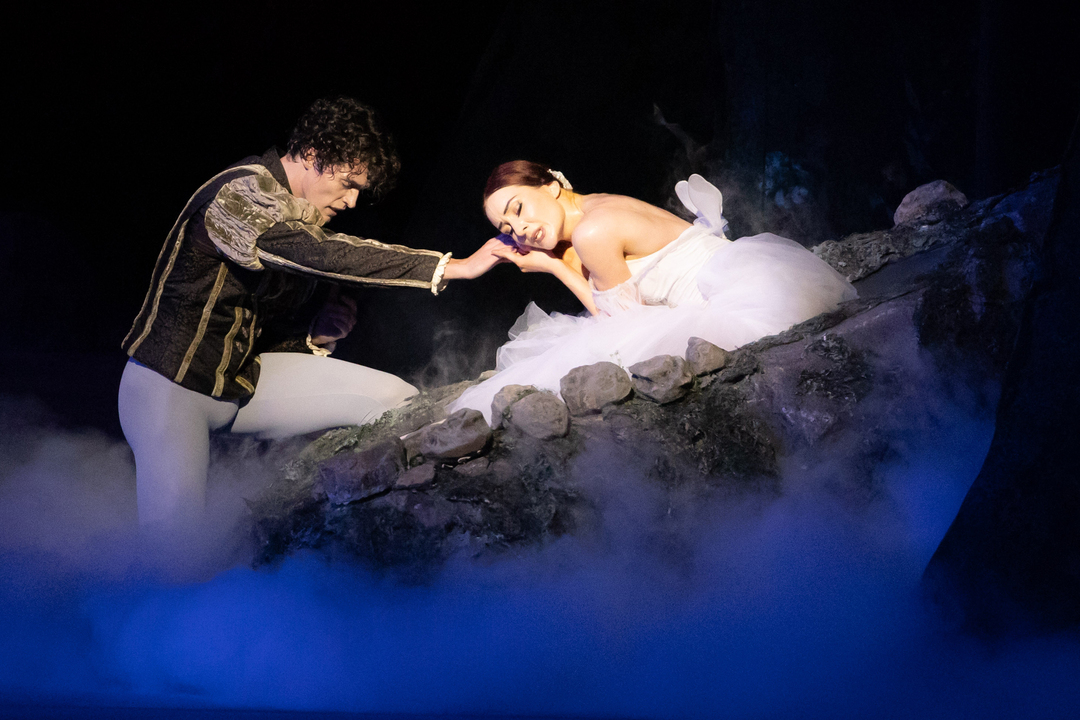The West Coast premiere of Alexei Ratmansky’s new Giselle performed by the United Ukrainian Ballet (UUB) at the Segerstrom Center for the Arts in Costa Mesa indeed carries a strong political message. Ratmansky, the choreographer, highlights the significance of hope and resilience within the context of the dancers’ experiences as Ukrainian refugees as a result of Russia’s invasion of Ukraine.
By emphasizing that “Hope is what the United Ukrainian Ballet is all about,” Ratmansky acknowledges the transformative power of art and the ability of the UUB dancers to find solace, strength, and unity in the face of adversity. Through their artistry, they have turned their pain into something beautiful and meaningful. The performance aims to convey their strength, honesty, pride, and determination to the audience, inviting them to experience the emotional depth and resilience embodied by the dancers.
In this way, the performance becomes a platform for the United Ukrainian Ballet to raise awareness about the plight of Ukrainian refugees and to showcase their artistic expression as a means of overcoming the challenges they have faced. By presenting their story through the universal language of dance, the UUB seeks to foster empathy, understanding, and solidarity among the viewers, transcending political boundaries and resonating with the audience on a human level.

This blend of art and politics in the performance of Giselle serves as a powerful testament to the transformative potential of the arts in bringing attention to important social issues and inspiring change.
The evening was a benefit for BlueCheck Ukraine; the organization created by Liev Schreiber, to vet, verify, and fund Ukrainian-led frontline organizations providing humanitarian aid to victims of the Russian invasion. The evening was made possible by Elizabeth Segerstrom, Ratmansky’s longtime friend and major supporter of his work at the American Ballet Theater and through the Henry T. and Elizabeth Segerstrom Foundation. Mrs. Segerstrom attended the evening surrounded by friends and hosted a reception following the opening night.
Born in Leningrad, Ratmansky’s father is Ukrainian and his mother Russian. He was raised in Kyiv, where much of his family still lives. So, for him, the conflict is personal.
Elizabeth Segerstrom offers these words, “Despite insurmountable obstacles, these dancers, who have all been displaced because of this tragic conflict, have remarkably come together to create a world-class company which demonstrates the transcendent power of the arts. This evening is dedicated not only to these dancers and their spirit but also to you, whose presence tonight demonstrates your commitment to the cause.”
Elizabeth Segerstrom’s words highlight the extraordinary resilience and determination of a group of dancers who have faced immense challenges due to a tragic conflict. Despite being displaced from their homes, these dancers have managed to unite and form a world-class company, showcasing the transformative power of the arts. The dedication of the evening extends not only to the dancers and their indomitable spirit but also to the audience present, acknowledging their unwavering support and commitment to the cause.
A star-studded audience, including Cheryl Burke, Veronika Dash, Mario Lopez, Nigel Lythgoe, Gleb Savchenko, and Montana Tucker as well as Los Angeles Ballet’s Artistic Director Melissa Barak and Chair Jennifer Bellah Maguire, joined the Artistic Director and Founder of UUB, Igone de Jongh, who said, “Tonight is an historic occasion, made possible by the Henry T. and Elizabeth Segerstrom Foundation through her tremendous generosity and humanitarian spirit. Elizabeth has brought us here to this magnificent theater, to share with you the transformative power of the arts.”


ABT’s Christine Shevchenko starred the title role on opening night, with a cast that also included Alexis Tutunnique, Elizaveta Gogidze, Oleksii Kniazkov, Iryna Zhalovska, and Denys Nedak with the Pacific Symphony under the baton of Gavriel Heine. Ratmansky explained, “This Giselle is an interpretation of one of the greatest romantic ballets in the classical repertoire. The end is surprising. Traditionally, the hero is left alone with his pain. Our ending gives hope.”
After the final curtain for Giselle, and rounds of standing ovations, UUB returned to the stage with Ukrainian flags as Pacific Symphony played the Ukrainian National Anthem. When the curtain rose again, Ukrainian soldier Oleksander Budko Teren took the stage performing Airlift, choreographed by Emma Evelein. Both his legs have been amputated after a tragic war incident. Now fitted for prosthetics in the US (thanks to the Revived Soldiers Ukraine Foundation). UUB invited him to attend their performance in Washington and he fell in love with the company. UUB dancers surrounded Teren as the emotional crowd at Segerstrom Center for the Arts rose to their feet again when the curtain fell the final time.


